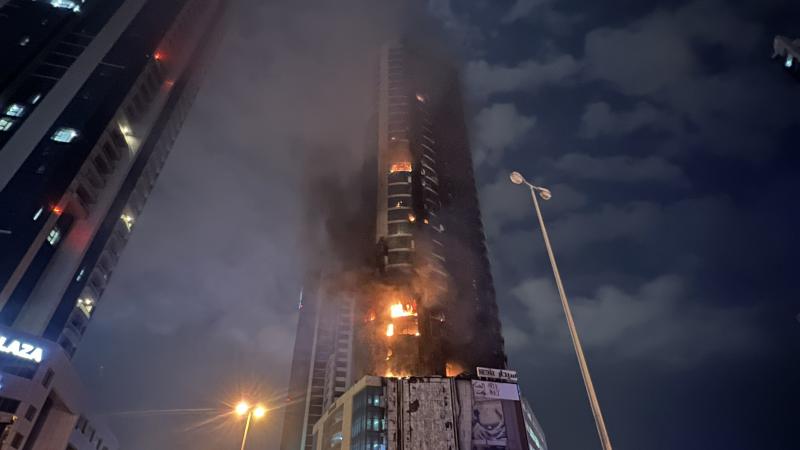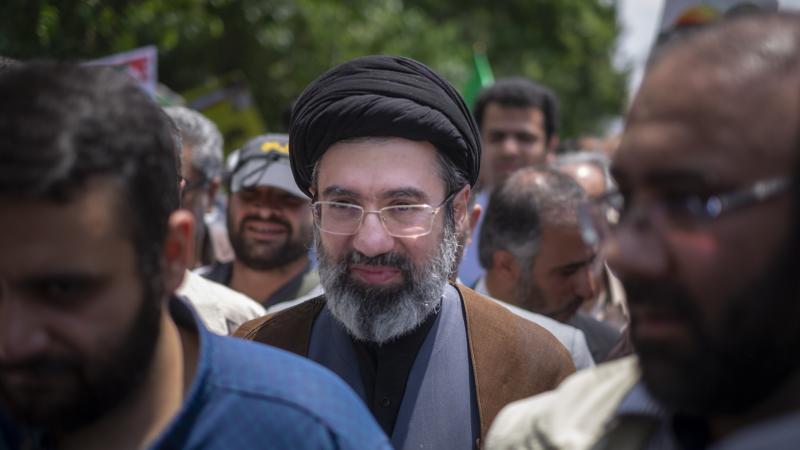Pompeo visits Iranian opposition to show support for growing anti-government protests
"We must continue to support the Iranian people as they fight for a freer and more democratic Iran," former secretary of state said
Former Secretary of State Mike Pompeo on Monday visited the headquarters of Iran's largest and most prominent opposition group to show his support for the Iranian people in their growing public opposition to the Islamist regime.
"One thousand former political prisoners of the theocratic regime are gathered here today," said Pompeo, who traveled to Ashraf 3, in Albania, the home base of the exiled People's Mojahedin Organization of Iran (MEK). "I want to say to you, from a former secretary of state, that America recognizes and deeply respects you."
He also said: "The things you have suffered in the name of freedom reminds us of what our country was founded to defend and secure so many years ago. We must continue to support the Iranian people as they fight for a freer and more democratic Iran in any way we can."
Pompeo's visit came amid widespread anti-government protests across Iran and a brutal crackdown by the regime in a so-far-unsuccessful effort to quell the demonstrations.
The rising cost of food and other staples last week sparked sporadic unrest in several Iranian provinces.
The demonstrations quickly turned political, with protesters decrying the regime, in addition to the higher prices.
Many Iranian protesters were seen calling for "death" to Iranian President Ebrahim Raisi and Supreme Leader Ayatollah Ali Khamenei, the ultimate authority under Iran's theocratic government, according to reports and videos posted to social media.
In his remarks, Pompeo characterized Raisi as a stooge for Khamenei rather than a representative of the Iranian people.
"Raisi is not the president of the people of Iran. He is the president of the ayatollah," Pompeo said. "His [Raisi's] mission is clear: inflict pain, frighten, continue to loot, and plunder. But Raisi has already failed. He has failed to crush uprisings in Iran or break the noble spirit of dissent within the Iranian people."
Pompeo argued the regime is "clearly at its weakest point in decades," by pointing to the most recent presidential election, which had the lowest turnout since the inception of the Islamic Republic of Iran in 1979. Pompeo, who appears to have 2024 presidential aspirations, said the low voter interest was a "boycott" and "rejection" of the government.
Raisi served as deputy prosecutor of Tehran, the Iranian capital, from 1985 to 1988, when he played a prominent role in the execution of tens of thousands of political prisoners, many of whom were members of the MEK.
In the summer of 1988, then-Supreme Leader Ayatollah Ruhollah Khomeini ordered the secret executions, and Raisi was part of a so-called "death committee" that carried out several or oversaw many of the killings.
"Actions supporting our love of the Iranian people must begin by holding Ebrahim Raisi accountable for his crimes against humanity back in 1988," Pompeo told the Iranian dissidents present in Albania. "As a group with a real political voice in Washington and around the world, we need you to represent to world leaders the destructive capabilities of the theocratic dictators in Tehran."
In the latest round of protests inside Iran, the regime has attacked protesters with batons and tear gas, activists say. It's unclear how many people have been injured or arrested, but at least four protesters have been killed in the crackdown, according to unconfirmed reports.
Sporadic anti-regime protests have become common in Iran in recent years. In December 2019, for example, the U.S. government confirmed that the Iranian regime killed about 1,500 protesters as part of a crackdown by security forces on demonstrations the prior month.
During his five-hour visit, Pompeo met with Maryam Rajavi, president-elect of the National Council of Resistance of Iran, a coalition of Iranian opposition groups.
"Under her leadership, the National Council of Resistance of Iran is laying the groundwork for a free, sovereign, and democratic republic in Iran," he said.
Rajavi said the regime is weaker than ever while the Iranian opposition grows, arguing the West has allowed the former to get closer to obtaining nuclear weapons by ignoring the Iranian people and their organized resistance. She called for maintaining strong economic sanctions on Iran and referring the regime's human rights abuses and support for terrorism to the United Nations Security Council.
Pompeo agreed with Rajavi's sentiments and expressed optimism about the current regime eventually being replaced by a less hostile government.
"In the end the Iranian people will have a secular, democratic, non-nuclear republic," he said.















